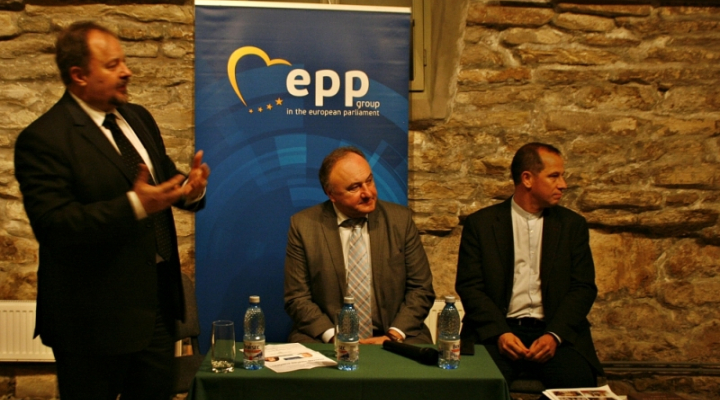One in ten cigarettes sold illegally in the EU
Illegally smuggled cigarettes and tobacco products cost the member states of the European Union an estimated ten billion Euros per year in lost revenues. In addition to the economic losses, smuggling also undermines public health policies and violates the EU regulations on tobacco manufacturing, distribution and sale - said MEP Csaba Sógor.
The World Health Organisation’s (WHO) Framework Convention on Tobacco Control (FCTC) entered into force in 2005 as a counter measure to the epidemic-like spread of tobacco products. In 2012 the FCTC protocol, which aims to put an end to illegal tobacco trade - was also adopted. On June 7 this year, during the plenary session of the European Parliament in Strasbourg MEPs voted for the EU to ratify the document.
RMDSZ MEP Csaba Sógor was shadow rapporteur on the matter on behalf of the European People’s Party. In his view, this protocol represents an efficient tool to address the phenomenon of tobacco smuggling, as it provides a comprehensive global regime of monitoring, detection and sanctions for money laundering.
Member States gain over 90 billion euros per year from legal tobacco trade. The 10 billion-revenue loss means that one in 10 cigarettes are illegally sold. "Tobacco smuggling also bypasses our efforts to deter young people from smoking" – further explained Csaba Sógor the consequences of this phenomenon. He believes that overseeing the supply chain is not only important for countering illegal trade but it would also reduce smoking.
The FCTC protocol will become legally binding if it is adopted by at least 40 states. The EU can become a member of the Convention, even if not all Member States ratify it. Currently, 16 countries have adopted it worldwide, 5 of which are EU member states: Austria, Spain, Portugal, France and Latvia. The United Kingdom, Ireland, Germany, the Netherlands and Lithuania have already expressed their intention to join. According to Csaba Sógor, the ratification of the protocol would set an example for those Member States, which have not yet joined it. Since a large part of the black market tobacco originates from outside of the EU there is a need for a strong and stable international cooperation and an international legal framework to effectively counter the problem – stated the MEP.











